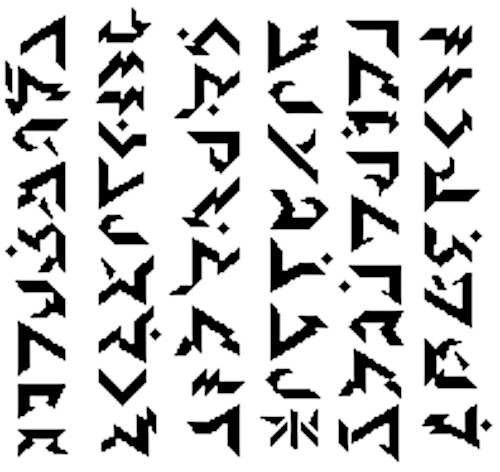
Linguist John Quijada designed the experimental language Ithkuil to permit “maximal communication in the most efficient manner”: Cognition processes far more information than natural languages typically express, and natural languages are full of vagueness and ambiguity; Ithkuil tries to express deep levels of cognition precisely while making the speaker’s intent clear.
The results can be striking. The 19-word English phrase “On the contrary, I think it may turn out that this rugged mountain range trails off at some point” can be expressed in two words in Ithkuil. And the passage above reads “As our vehicle leaves the ground and plunges over the edge of the cliff toward the valley floor, I ponder whether it is possible that one might allege I am guilty of an act of moral failure, having failed to maintain a proper course along the roadway.” And both of these expressions indicate the speaker’s full intent directly, where natural languages would tend to leave their full meaning to be inferred.
No one actually speaks Ithkuil — Quijada says he regards it as “an exercise in exploring how human languages could function, not how human languages do function.”
(John Quijada, A Grammar of the Ithkuil Language, 2011.)
